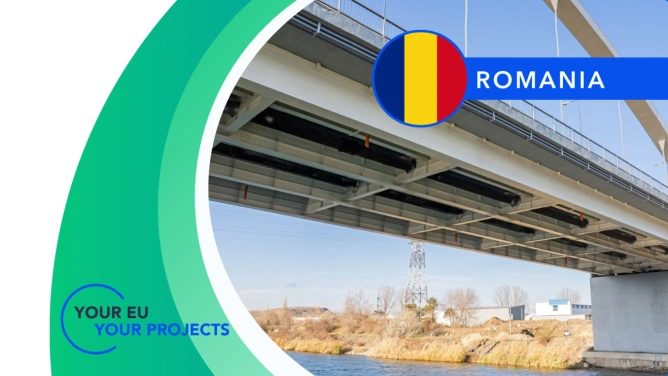
Confidence in the EU and NATO and variations on the theme (the belief that we should remain in NATO and the EU, or other formulations of indicators in this family) have long been among the most unproblematic and boring indicators in opinion polls.
Practically, even before our admission to the two organizational structures, we have been some of the most enthusiastic Europeans about the common Euro-Atlantic future. It was precisely this succession of our "entry" into Europe and the wider West, as they used to say in the 1990s, that associated NATO, the EU and the USA in the Romanian mind for a long time. Practically, for us, they all came together. The relative deregulation of the political compass and the volatility of the political options that have grafted our electoral space in the last year - an election year par excellence - were also due to an international context in which Europe's attractiveness for its own citizens is, at least partially, in crisis, and the solidarity of the Western world, imagined by us as an "Empire of Good", is being severely tested by the turn inward of Donald Trump's America. Sovereignism is also bringing out of the closet isolationism which, at least in Romania, has slightly taken on hints of inter-war radicalism and Ceausescu national-communism, all to take away because, isn't it (?)... public opinion does not necessarily have to be coherent.
Old sociological studies explained that the Romanian public often has a duplicitous attitude towards the public good. Many sociologists explained this by referring to the public-private dilemma of communism, when everything was ours, but nothing was ours - and then some people came along and made huge fortunes from public wealth. Whether it could have been otherwise is another matter. But all this has left a strong imprint on civic-mindedness, public involvement, volunteering, etc., which Romanians do not reject as an idea (on the contrary, we are a soulful people), but they regard them with suspicion, because there is always the potential for someone to be behind it, taking advantage of the naivety and good faith of the simple man who wants to do good.
After all, today's whole electoral crisis is a crisis of the political marketplace, of voters' distrust of the political offer. We are not yet at the point where we are choosing between remaining and leaving Europe, nor between mother and country (EU and US, I guess), as nicely put. The latter choice is a very successful analytic metaphor, but it doesn't contain that much truth. If we were to continue it imaginary, it would rather be mom and dad who not only divorce but also run away, and we would be the child who is left alone and doesn't understand what is going on. No one expects Romanians to choose between the EU and the US. So I propose to you, based on the data that INSCOP has recently produced, in the survey Population's Attitudes on Economic Patriotism and the Vulnerability of the Democratic Regime, a different perspective.
Nearly 90% of Romanians say we should stay in NATO and the EU. Sure, agreement with what the EU is doing, for example, has been varying lately, but without getting into the crisis zone. And it's one thing to disagree with some of the things my friends are doing, it's another to want to break up with them, right? We have a whole raft of data showing that Romanians value freedom of movement - of any kind - in the EU terribly. If populist radicals and extremists across the EU explained to voters that less Europe means less freedom of movement, or more expensive..., things would change.
Further, our respondents themselves explain: around 40% of Romanians think that our EU membership limits our sovereignty too much. We don't have to wonder which way. Every citizen is entitled to an opinion, a poll is not a grid test. And where the public will point out concrete elements of dissatisfaction, they are specific things (e.g. Europe's war on gasoline cars, the liberalization of the electricity market, elements of the new political correctness, various bans, the EU's reporting on the past pandemic, etc.). Many of these things are, frankly speaking, misrepresented, including by European or national authorities, others have become the subject of fake-news, and others, indeed, are more to do with the inability of national authorities to manage the situation - for example, the fact that the electricity market in Romania is literally crazy is not just the EU's fault. Other EU countries are doing better, so it is possible. Then there is the narrative that "they exploit us". Partly true, I agree. But they exploited you even during Ceausescu's time, if they needed something from you, and you didn't even know about it, nor did you get anything in return. And where they failed to turn you into a market (another popular narrative in the last 30 years - "they deindustrialized us to turn us into a market"), the visible result was a regular shortage of products, including essential ones. After all, anyone who wants to live exactly as in Ceausescu's time can buy a Dacia 1310, keep the lights on for a maximum of four hours a day, limit their gas consumption, turn off the radiator, turn on the TV for two hours a day in the evening and turn on the hot water only on Saturday and Sunday. No restaurants, cafes, fast-food, no at least half of the weekly (or more often) shopping basket at the hypermarket, no meat every day, no exotic fruits, no internet, no fancy clothes and shoes, no today's wide range of cosmetics and hygiene products. And without clubs and vacations abroad. And we'll find we're left with a lot of money.
On the other hand, according to our poll, only 5% of Romanians want to leave the European Union. 80% just want better terms negotiated. These figures show that, in a way, the public has been fooled: all over Europe, radicals, sovereignists, populists, extremists are Eurosceptic movements, not just reformist ones, even if they don't always say so. It would be fair to know that such a political option also means pressing the Eurosceptic pedal in the future.
50% of Romanians say there is less foreign investment in Romania than in other EU countries. Only 18% think there is more. This indicator is particularly revealing: so the better conditions that Romanians want in relation to the EU are not about isolationism, but we want more investment. A subsequent question shows that 70% of respondents want foreign investment to increase, not decrease. So we don't want to let go of the globalization chains, I note. And we also have a good opinion about exploiters - about 71% say that multinationals investing in Romania are okay. The same goes for those that come strictly from the EU in Romania, and even a little better (73-74%).
But, surprise surprise, 46-47% of Romanians say that the government should provide preferential rules for Romanian companies, only 50% (compared to the 70% who agree with foreign investments) think that our government should promote the same rules for local and foreign companies. What should that be? Romanian globalization or Romanian sovereignism?
The fact that the anti-system is really anti- and not an alternative option is well highlighted by another indicator: surprisingly, Romanians, eternally dissatisfied with the state, mostly want more state-owned companies on the market. The explanation is simple. After the disaster of liberalizing the energy market, people are absolutely terrified that control over public health, education or other essential services might get out of hand. Another ingredient of the discontent that dominates the current public and political space, from citizens to the political class, is one that is not directly related to either welfare or initiatives coming from the top of the EU. Justice. Yes, the secret and non-extremist ingredient of any populist and anti-system movement is the exploitation of public anger about the degree of justice, social and legal, that exists in a particular society. In short, only 30% of our fellow citizens believe that the law is applied equally to all. 68-69% believe that this is not the case. So much for belief in a just world. After all, that's where it all starts, including the belief that institutions do their job, the belief that democracy works, the foundation of prosocial behavior, etc. And if institutions are unpredictable, the citizen-voter must have thought to be unpredictable too.
But, beyond that, the data clearly show that, for the time being, Romanians' pro-Western direction and attachment to the EU area are not compromised. And no, we are not facing a revolution, as some want to give the impression, but yes, we are facing, as so many times in history, a small uprising. Or as a wiser colleague used to say, we do not need to change the direction, we need to change the driver, maybe even a few things around the car. Just let's not have a driver who, for various reasons, takes the decision to change direction on his own. Or one who breaks the car completely...



